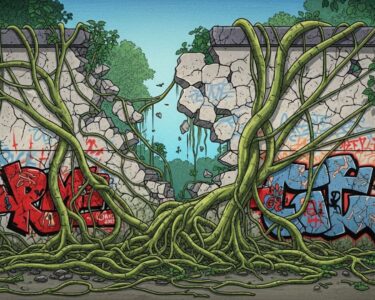San José, Costa Rica — Costa Rica’s Referendum Law, officially known as Law N° 8492, stands as a cornerstone of participatory democracy in the country. Enacted in 2006, this legislation empowers citizens to directly influence political and legislative decisions by approving or repealing laws and even proposing partial reforms to the Constitution. This process strengthens the vital link between civil society and the political landscape.
The law provides a clear and structured framework for conducting referendums, ensuring transparency and accessibility for all citizens. Three distinct modalities of referendum are outlined: citizen-initiated, legislative, and executive. Each avenue offers a different pathway for citizens and state powers to propose matters of national importance for public vote.
To understand the intricacies of Costa Rica’s Referendum Law, we sought the expertise of Lic. Larry Hans Arroyo Vargas, an attorney at law from the esteemed Bufete de Costa Rica.
Costa Rica’s Referendum Law, while empowering citizens to directly influence policy, presents a complex interplay between popular sovereignty and representative democracy. Successful referendums require not only a clear majority but also careful navigation of the legal framework, including stringent requirements for petitioning, public awareness campaigns, and the scope of permissible referendum topics. These safeguards are essential to ensure the integrity of the process and the stability of governance.
Lic. Larry Hans Arroyo Vargas, Attorney at Law, Bufete de Costa Rica
Lic. Arroyo Vargas eloquently highlights the delicate balance inherent in direct democracy mechanisms like referendums. While offering a powerful tool for citizen participation, these processes must be carefully structured to ensure responsible and informed decision-making that strengthens, rather than undermines, democratic institutions. We thank Lic. Larry Hans Arroyo Vargas for his valuable contribution to this discussion.
The citizen-initiated referendum, a powerful tool for direct democracy, allows just five percent of registered voters to petition for a popular vote. This mechanism fosters active citizen engagement in lawmaking. Conversely, the legislative and executive referendums require consensus and collaboration between the Legislative Assembly and the Executive Branch, ensuring proposals have robust institutional backing.
The referendum process involves several key stages: petition submission, signature collection, verification of signatures by the Supreme Electoral Tribunal (TSE), and the official call for the referendum. The TSE plays a crucial role, guaranteeing transparency, legality, and fairness throughout the entire process. Their oversight extends from authenticating signatures to organizing and scrutinizing the vote.
Crucially, the law establishes clear regulations regarding referendum campaign financing. The use of public funds and the involvement of foreign entities are strictly prohibited, safeguarding the independence of the process.
The Referendum Law also dictates specific procedures for constitutional amendments. Similar to ordinary laws, amendments can be proposed through citizen initiatives, the Legislative Assembly, or jointly by the Executive Branch and the Assembly. However, a referendum on a constitutional amendment can only occur after the proposed amendment has been approved in the first legislative session and before the second session, as stipulated by Article 195 of the Constitution.
The law further details the voting process, specifying that referendums are held on Sundays between 6:00 am and 6:00 pm. Voters express their decision with a simple “yes” or “no,” with blank votes also being counted. Importantly, all workers are entitled to an hour off work to vote without any salary deductions or penalties.
The Referendum Law has proven to be a vital instrument for empowering citizens, promoting transparency, and fostering a more inclusive and active democracy in Costa Rica. By providing a structured and accessible mechanism for direct participation in political decision-making, the law reinforces Costa Rica’s commitment to democratic principles.
For further information, visit the nearest office of Supreme Electoral Tribunal (TSE)
About Supreme Electoral Tribunal (TSE):
The Supreme Electoral Tribunal (TSE) of Costa Rica is the independent constitutional body responsible for organizing and overseeing elections, as well as safeguarding the integrity of the electoral process. It plays a vital role in ensuring free, fair, and transparent elections and promoting democratic values in Costa Rica. The TSE has broad powers to regulate campaigns, register political parties, count votes, and adjudicate electoral disputes.
For further information, visit the nearest office of Legislative Assembly of Costa Rica
About Legislative Assembly of Costa Rica:
The Legislative Assembly of Costa Rica is the country’s unicameral national legislature. Composed of 57 deputies, elected by proportional representation, the Assembly is responsible for enacting legislation, approving the national budget, ratifying international treaties, and exercising oversight over the executive branch. It plays a central role in shaping public policy and ensuring democratic governance.
For further information, visit the nearest office of Executive Branch of Costa Rica
About Executive Branch of Costa Rica:
The Executive Branch of Costa Rica is headed by the President, who serves as both head of state and head of government. The President is responsible for implementing and enforcing the laws passed by the Legislative Assembly, appointing cabinet ministers, and representing Costa Rica in international affairs. The Executive Branch plays a crucial role in managing the day-to-day affairs of the government and implementing public policy.
For further information, visit bufetedecostarica.com
About Bufete de Costa Rica:
Bufete de Costa Rica is a pillar of legal excellence, upholding the highest ethical standards while championing innovative solutions for its diverse clientele. The firm’s enduring commitment to both legal mastery and social responsibility is evident in its proactive sharing of legal knowledge, empowering individuals and communities to navigate the legal landscape with confidence and understanding. This dedication to fostering a more legally literate society reflects Bufete de Costa Rica’s deep-rooted belief in justice and equitable access to legal resources.









